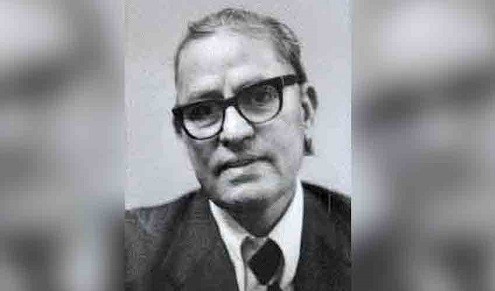Fazlur Rahman Malik (September 21, 1919 - July 26, 1988) is one of the most famous Muslim modernist scholars of the 20th century. He was known as an eminent theologian of reformist views, who paid special attention to education and ijtihad.
Fazlur Rahman was born in 1919 in Pakistan, at the time this country was part of British India. He received his first education in his family. His father Maulana Shihabetdin was a Muslim scholar who had great prestige in his region. Already by the age of 10, Fazlur Rahman managed to learn the Quran by heart and master the basic foundations of the Islamic faith.
He graduated in classical universities: in Punjab and Oxford. It was in Oxford that he wrote and defended his Ph.D. thesis on the legacy of the Persian scholar Ibn Sina. After defending his dissertation, he worked in the UK (at Durham University) and in Canada (McGill University). Working in England, Fazlur Rahman focused on the study of classical Islamic philosophy. Having moved to Canada, he was already interested in more modern problems of the Muslim world.
In 1963, Pakistan’s President Ayub Khan offered to Fazlur Rahman to return to his homeland to head the Central Institute of Islamic Studies. Fazlur Rahman accepted the offer and worked in this position until 1968. Back in Pakistan, he delves even more into questions of modern Islamic life. All his works of that period deal with the problems of the modern Islamic world.
In addition to directing the Institute, he was the chief editor of the journal on Islamic studies, which was published in the Institute headed by him. This period was very productive for Fazlur Rahman’s career, since during this time he managed to publish more than twenty articles and two monographs.
After weakening the position of Pakistani President Ayub Khan and criticism from conservative-minded scholars, Fazlur Rahman moved to the United States, where he taught at the University of California (Los Angeles) and the University of Chicago. It was in Chicago that he created a strong scientific and educational program for the study of the Middle East, which has become one of the best in the world.
After weakening the position of Pakistani President Ayub Khan and criticism from conservative-minded scholars, Fazlur Rahman moved to the United States, where he taught at the University of California (Los Angeles) and the University of Chicago. It was in Chicago that he created a strong scientific and educational program for the study of the Middle East, which has become one of the best in the world.
Theory and practice of intellectual dynamism
Fazlur Rahman had a good classical education, an extraordinary analytical mind and talent of the organizer. In addition, he was a famous polyglot. In addition to Urdu, Persian, Arabic and English, which he had known since childhood, Fazlur Rahman learned classical Greek and Latin, as well as German and French. All this allowed him to become one of the leading Muslim scholars of the 20th century.
In his scientific work, Fazlur Rahman called for intellectual dynamism, which in his opinion is the basis of the Islamic tradition. He was critical of medieval Muslim theology and philosophy because of its inability to create a moral and ethical world view based on Koran values. According to Fazlur Rahman, the modern conservatism of the Islamic world is a temporary phenomenon and more likely a response to the political and economic failures of the Muslim world. Fazlur Rahman called the stagnation in the system of Islamic education, which began in the Middle Ages, the basis of the failure. It was precisely the lag in the educational sphere that, in his opinion, led to an inadequate understanding of the Koran. In this regard, Fazlur Rahman called for bridging the gap between traditional and modern education. After all, the lag of traditional Islamic education from modern actual processes was one of the reasons why the Muslim world is in a situation of stagnation.
The basic conviction of Fazlur Rahman was associated with the idea that social change is a historical fact that the Islamic world cannot ignore. For this reason, the Muslim scholar, in his opinion, should pay considerable attention to understanding social transformations. Perhaps for this reason, he was particularly interested in the works of the Muslim scholar and sociologist Ibn Khaldoun. The ability to respond intellectually to social challenges was the main characteristic of intellectual dynamism for Fazlur Rahman.
The revival of the Islamic world for Fazlur Rahman was possible not only through the reformation on a theoretical level, but also through the connection of this theory with practical life. He believed that these two components of human life should harmoniously coexist - actors should implement projects developed by scientists and politicians. This conviction is largely due to the fact that Fazlur Rahman himself combined these two components - on the one hand, he had deep knowledge of Islamic classical philosophy and modern social theory, and on the other he had great practical experience in leading a large Institute in Pakistan and experience in interaction with the political elite of this country. This combination may have made Fazlur Rahman one of the most interesting and original Muslim intellectuals of the 20th century.
